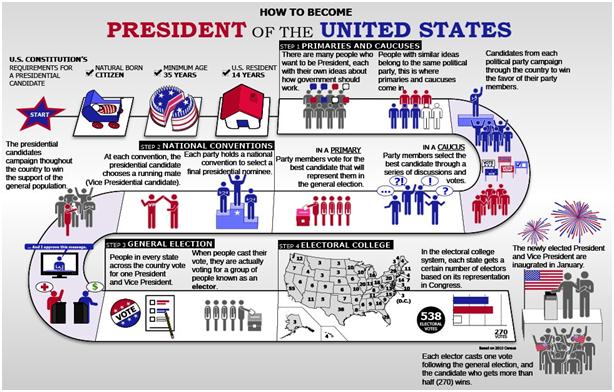

Let’s take a look at how the world’s oldest democracy counts their votes.
Context
Let’s take a look at how the world’s oldest democracy counts their votes.
About
How is the American President elected?
- There are five main steps to electing a President:
- Primaries and Caucuses
- National Conventions
- Election Campaigning
- General Election
- Electoral College
- Forty-eight states, plus the District of Columbia, have a winner-takes-all approach to their Electoral College votes.
- This means that on election day whoever wins the popular vote by even a single vote, wins all of the state's electoral votes.
- It therefore does not matter by how many votes the candidates win in each state, as long as they win more than the next person.
Who actually elected the President?
- US voters have no constitutional right to vote for the president or his running mate.
- In the US Election process, voters merely indicate a preference, but the task of actually electing the president falls to these 538 individual electors to the US Electoral College.
- It is possible for candidates to be the most popular candidate among voters and still fail to win enough states to gain majority electoral votes.
- In practice, electors almost always vote for the candidate who wins the popular vote.
|
For example
|
How are elections supervised in the US?
- In the US, all elections — federal, state, and local — are directly organised by the ruling governments of individual states.
- The US Constitution and laws grant the states wide latitude in how they administer elections, resulting in varying rules across the country.
- In many US states, the responsibility of conducting elections falls on the state’s secretary of state — a politician who in some states is directly elected and in others appointed by the state governor.
|
How is the election process different from India?
|



